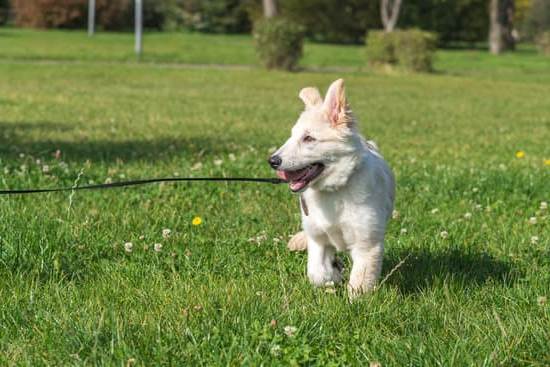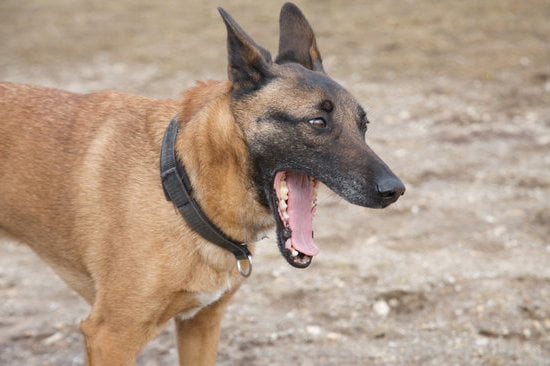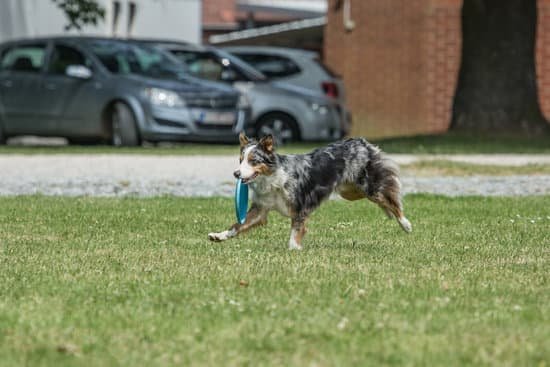Are you searching for effective ways on how to train your dog to stop eating poop? It’s a common and frustrating behavior that many dog owners face, but there are steps you can take to address this issue.
Understanding why dogs engage in this behavior, the potential risks it poses, and implementing preventive measures and training techniques can help you tackle this problem. In this article, we will delve into the reasons behind dogs eating poop, the health concerns associated with it, and provide tips on how to prevent and train your dog to stop this behavior.
Understanding the behavior of dogs eating poop is essential for addressing this issue. From exploring the reasons behind why they do it to understanding the potential health risks involved, having a clear understanding of this behavior will better equip you as a pet owner in dealing with it. By learning about preventive measures and effective training techniques, you can work towards helping your dog break this habit.
Along with understanding the behavior itself, knowing how to implement positive reinforcement and considering dietary factors are crucial aspects of addressing poop-eating habits in dogs. Additionally, consistency and patience play a significant role in the training process. Learning when to seek professional help from a vet or dog trainer is also important for ongoing support in managing this concerning behavior. Stay tuned as we delve into each of these aspects in detail throughout this article.
Why Dogs Eat Poop
One of the most perplexing behaviors that dog owners may encounter is their pet’s tendency to eat poop. This unsavory habit, technically known as coprophagia, can be a source of concern for many pet owners. In order to address this behavior, it is important to understand the reasons behind why dogs eat poop in the first place.
Instinctual Behavior
One possible reason for a dog’s poop-eating habit is rooted in their natural instincts. In the wild, animals often consume feces as a means of staying undetected by predators or cleaning up their living environment. While domesticated dogs may not face the same survival pressures as their wild counterparts, some experts believe that this instinctual behavior persists in some pets.
Dietary Deficiencies
Another potential explanation for coprophagia is related to dietary deficiencies. When a dog’s nutritional needs are not met through their regular diet, they may try to compensate by consuming feces in search of missing nutrients. Poor quality or insufficient food can lead to this behavior as the dog seeks out essential vitamins and minerals that they might be lacking.
Medical Conditions and Stress
Additionally, certain medical conditions such as malabsorption disorders or parasites could cause a dog to engage in coprophagia. Furthermore, stress and anxiety can also contribute to this habit in some cases. It is important for pet owners to consider these factors when attempting to address their dog’s penchant for eating poop.
Understanding these reasons behind why dogs eat poop is crucial in implementing effective training techniques and preventive measures. By recognizing the underlying causes of this behavior, pet owners can take proactive steps towards promoting their dog’s overall well-being and fostering responsible ownership practices.
Risks and Health Concerns
Dogs eating poop, also known as coprophagia, can be a concerning behavior for many pet owners. This behavior can pose potential risks and health concerns for the dogs involved. One of the primary concerns is the transmission of parasites and diseases through the ingestion of feces.
Dogs that consume poop from other animals or even their own can be at risk of contracting parasites such as roundworms, hookworms, and giardia. These parasites can cause digestive issues, weight loss, and other health problems in dogs. Additionally, certain infectious diseases can be transmitted through coprophagia, putting your dog’s health at further risk.
Ingesting poop can also lead to nutritional deficiencies in dogs. When a dog consumes feces, they may not be getting the necessary nutrients from their regular diet, leading to potential health issues over time. Furthermore, the act of eating poop itself is unhygienic and can lead to bad breath and an increased risk of oral infections in dogs.
It’s important for pet owners to understand the potential dangers associated with coprophagia and take steps to address this behavior in their dogs. Educating oneself on how to train your dog to stop eating poop is crucial in mitigating these risks and ensuring the overall well-being of your furry companion. By implementing preventive measures and training techniques, you can help prevent your dog from engaging in this undesirable behavior and promote a healthier lifestyle for them.
Preventive Measures
Dogs are known for exhibiting some unusual behaviors, one of which is eating poop. This behavior, known as coprophagia, can be quite concerning for dog owners. While it may seem gross to humans, it is important to understand that there are reasons behind this behavior. In order to address this issue, it’s essential to take preventive measures and train your dog to stop eating poop.
One of the first things you can do to prevent your dog from eating poop is to ensure that their living environment is clean and free from any feces. This means promptly cleaning up after your dog and keeping your yard or walking areas free of other animals’ waste. Restricting access to areas where they might find feces can also be helpful.
Another preventive measure involves ensuring that your dog is getting enough nutrition from their regular meals. Sometimes, dogs eat poop because they are not getting the necessary nutrients from their food, so it’s essential to feed them a well-balanced diet. Some experts suggest adding certain supplements or probiotics to improve digestion and overall health, which may reduce the urge to eat feces.
Lastly, when you take your dog out for walks or playtime, keep an eye on them and discourage any attempts to eat poop. Using verbal cues such as “leave it” or “no” can help them understand what behavior is unacceptable.
| Preventive Measures | Tips |
|---|---|
| Clean living environment | Promptly clean up after your dog and restrict access to areas with feces |
| Nutritious diet | Feed your dog a balanced diet and consider adding supplements or probiotics |
| Verbal cues | Use verbal cues like “leave it” or “no” during walks or playtime |
Training Techniques
As a dog owner, it can be quite distressing and frustrating to witness your beloved pet engaging in the unpleasant behavior of eating poop. However, with the right training techniques and understanding of your dog’s behavior, it is possible to curb this habit. Here’s a step-by-step guide on how to train your dog to stop eating poop.
The first step in training your dog to stop eating poop is to ensure that they are getting adequate nutrition from their diet. A balanced diet can reduce the likelihood of coprophagia, which is the medical term for dogs eating feces. Make sure your dog is receiving high-quality food with necessary nutrients and consult your veterinarian if you have any concerns about their diet.
Another important step in training your dog is teaching the “leave it” command. This command can be useful in various situations, including preventing your dog from consuming feces. Start by using a treat that your dog enjoys and saying “leave it” firmly but not aggressively. When they obey and move away from the treat, reward them with praise or another treat they like. Over time, they will associate the command with avoiding the undesirable behavior.
Consistency and patience are key when training your dog to stop eating poop. It may take time for them to break this habit, so it’s important not to get discouraged if progress seems slow. Be persistent in using the training techniques and positive reinforcement consistently, and remember that seeking professional help from a vet or dog trainer is always an option if you feel overwhelmed or unsure about how to proceed.
| Training Technique | Description |
|---|---|
| Adequate Nutrition | Ensure proper diet for your dog |
| “Leave It” Command | Teach command to prevent consumption of feces |
| Consistency and Patience | Be persistent in using training techniques and seek professional help if needed |
Positive Reinforcement
Training your dog to stop eating poop can be a challenging and frustrating task. One of the most effective ways to modify this behavior is through positive reinforcement. This training technique focuses on rewarding your dog for exhibiting the desired behavior, in this case, refraining from consuming feces.
To effectively use positive reinforcement, it is important to have an understanding of what motivates your dog. Every dog is different, so it may take some trial and error to figure out what type of reward will be most effective. For some dogs, treats may be the best form of motivation, while others may respond better to verbal praise or physical affection.
When implementing positive reinforcement, it is crucial to catch your dog in the act of not eating poop and immediately reward them. This helps your dog make an association between refraining from the behavior and receiving a reward. Consistency is key in this training approach, as reinforcing good behavior each time it occurs will help solidify the desired outcome.
In addition to using positive reinforcement to discourage poop-eating behavior, it is also important to ensure that your dog has access to alternative activities and toys that are both mentally and physically stimulating. By providing these distractions and engaging with your dog in regular exercise and playtime, you can redirect their focus away from consuming feces. With patience, consistency, and the right incentives, you can effectively train your dog to stop eating poop.
Dietary Considerations
Dogs are known for their scavenging behavior, and one of the most common and revolting habits is eating feces. This behavior, known as coprophagia, can be a perplexing and frustrating issue for many pet owners. One important factor to consider when tackling this problem is the impact of your dog’s diet on their poop-eating habits.
Quality of Diet
The quality of your dog’s diet can have a significant impact on their poop-eating habits. A balanced and nutritious diet can result in firmer and less appealing stools, which may deter dogs from consuming their waste. Ensuring that your dog is receiving high-quality, digestible food can reduce the likelihood of them wanting to eat feces.
Digestibility
Another important consideration is the digestibility of your dog’s food. If a dog’s diet is not easily digestible, it can result in undigested nutrients being excreted in their stool. This can make the feces more appealing to dogs, leading to coprophagia. Choosing a highly digestible diet tailored to your dog’s specific needs can help address this issue.
Supplements and Additives
In some cases, adding specific supplements or additives to your dog’s food may help deter them from consuming feces. For example, adding certain digestive enzymes or natural deterrents to their diet can make their waste less appealing. It is important to consult with a veterinarian before introducing any supplements or additives to ensure they are safe and appropriate for your dog.
Understanding how a dog’s diet can affect their poop-eating habits is crucial when working to modify this behavior. By providing a high-quality, easily digestible diet and possibly incorporating specific supplements or additives, you may be able to help discourage this undesirable behavior in your canine companion.
Consistency and Patience
Training your dog to stop eating poop is not an overnight process, and it requires consistency and patience from the owner. Here are some key steps to follow in order to successfully train your dog to stop this behavior:
1. Establish a consistent routine: Dogs thrive on routine, so it’s important to establish a consistent feeding schedule. This helps regulate their digestion and may reduce the likelihood of them seeking out feces as a supplement to their diet.
2. Supervise outdoor time: When you take your dog out for walks or to go potty, supervise them closely and discourage them from approaching or sniffing feces. Use positive reinforcement such as treats or praise when they listen to your commands and avoid eating poop.
3. Redirect their attention: If you catch your dog about to eat poop, quickly redirect their attention with a toy or another activity that they enjoy. This teaches them that there are more rewarding behaviors than consuming feces.
4. Be patient and persistent: Training a behavior out of a dog takes time and effort. It’s important for owners to remain patient and consistent in their training efforts. Keep in mind that setbacks may occur, but with continued persistence, most dogs can be trained out of this habit.
By following these steps consistently and patiently working with your dog, you can effectively train them to stop eating poop and ensure they maintain a healthy diet free from potential health risks associated with coprophagia (poop-eating).
Seeking Professional Help
Many dog owners may find themselves at a loss when trying to train their dog to stop eating poop. Despite their best efforts, some dogs may continue to exhibit this behavior, leading to frustration and concern for their health. In such cases, it may be necessary to seek professional help from a vet or a dog trainer who specializes in behavioral issues.
When your attempts to train your dog on how to stop eating poop have been unsuccessful, it’s time to consider seeking expert guidance. A qualified veterinarian can conduct a thorough examination of your dog to rule out any underlying medical conditions that may be causing this behavior. They can also offer advice on dietary changes or supplements that may help deter poop-eating behavior.
On the other hand, a certified dog trainer with experience in addressing behavioral problems can provide valuable insights and tailored training techniques specifically designed to address poop-eating habits. These professionals can assess the root cause of the behavior and develop a personalized training plan that takes into account your dog’s unique temperament and needs, offering you the best chance at success.
Seeking professional help does not mean giving up on your efforts; rather, it demonstrates your commitment to providing the best care for your pet. Both vets and dog trainers are equipped with the knowledge and expertise needed to understand how to train your dog to stop eating poop effectively. Remember that every dog is different, and by consulting with experts, you can gain valuable support in addressing this challenging issue.
Conclusion
In conclusion, understanding and addressing the behavior of dogs eating poop is crucial for responsible pet ownership. It’s essential to recognize why dogs engage in this behavior, the potential health risks associated with it, and how to prevent and train them to stop. By taking the time to understand their motivations and implementing effective training techniques, pet owners can help their dogs overcome this undesirable habit.
As outlined in this article, there are various reasons why a dog may eat poop, including behavioral, medical, or dietary factors. Despite the instinctual nature of this behavior, it is not without its risks. Ingesting feces can expose dogs to parasites and bacteria that may compromise their health. Therefore, preventive measures such as keeping the environment clean and providing a balanced diet are important for minimizing the risk of poop-eating.
When it comes to training techniques, consistency and patience are key. Positive reinforcement methods can be highly effective in encouraging desired behaviors while seeking professional help when necessary is also advisable.
While it may take time and effort, with proper training and guidance from a veterinarian or dog trainer, pet owners can successfully teach their dogs to stop eating poop.Ultimately, being a responsible pet owner involves not only understanding your dog’s needs but also ensuring their overall well-being – including addressing undesirable behaviors such as poop-eating.
By implementing preventive measures, employing appropriate training techniques, and seeking professional assistance when needed, pet owners can help their furry companions lead healthier and happier lives.
Frequently Asked Questions
How Do You Discipline a Dog That Eats Poop?
Disciplining a dog that eats poop can be challenging, but it’s important to address the behavior calmly and consistently. Redirecting their attention with a toy or treat when they try to eat poop, using positive reinforcement when they listen, and avoiding punishment are some effective methods.
How Do You Break the Habit of Dogs Eating Poop?
Breaking the habit of dogs eating poop involves understanding the underlying reasons for this behavior. Keeping the yard clean, providing enough mental and physical stimulation, using deterrents like commercial products or hot sauce on poop, and teaching the “leave it” command can help discourage this habit.
What Vitamin Does a Dog Need to Stop Eating Poop?
Dogs that eat poop may have a nutritional deficiency such as lack of certain vitamins or minerals like vitamin B and digestive enzymes. Consulting with a veterinarian to determine any deficiencies and potentially adding supplements or changing their diet can help address this issue.

Welcome to the blog! I am a professional dog trainer and have been working with dogs for many years. In this blog, I will be discussing various topics related to dog training, including tips, tricks, and advice. I hope you find this information helpful and informative. Thanks for reading!





